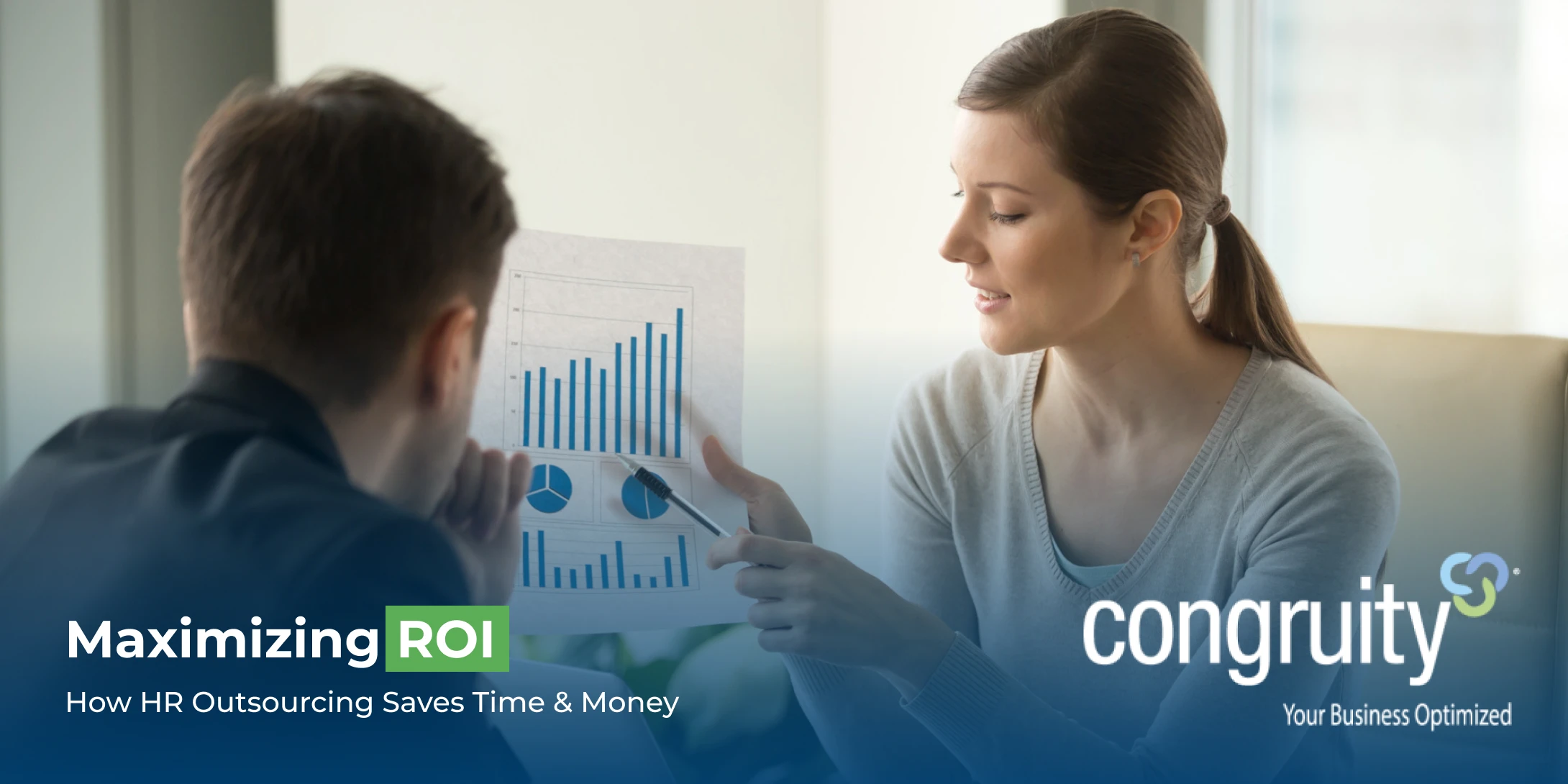Top HR Outsourcing Company Congruity:
Running a business requires juggling multiple responsibilities, and managing human resources (HR) is one of the most complex and time-consuming tasks. From payroll processing to compliance with labor laws, HR functions demand expertise, time, and financial resources. This is where a Professional Employer Organization (PEO) can make a significant impact.
By outsourcing HR to a PEO, businesses can reduce costs, improve compliance, and free up valuable time to focus on growth. In this article, we’ll break down the return on investment (ROI) of working with a PEO, covering financial benefits, time savings, compliance advantages, and key considerations for choosing the right PEO.

A Professional Employer Organization (PEO) is a third-party HR provider that enters into a co-employment agreement with businesses. This means the PEO handles key HR functions such as payroll, benefits administration, and compliance while the business retains control over daily operations and employee management.
PEOs leverage economies of scale to provide small and mid-sized businesses (SMBs) with access to Fortune 500-level benefits, automated payroll solutions, and expert HR support. Services typically include:
A Professional Employer Organization (PEO) offers significant advantages over in-house HR by streamlining essential functions. Payroll and tax compliance are automated and error-free with a PEO, whereas in-house HR management can be time-consuming and prone to mistakes. When it comes to employee benefits, PEOs provide access to cost-effective, high-quality options that small businesses might not afford independently, while in-house HR often deals with expensive and limited benefit plans. Compliance support is another major advantage, as PEOs stay up to date with federal and state regulations, whereas in-house teams may require costly legal expertise to remain compliant. Additionally, PEOs help reduce overall HR expenses through shared costs, whereas maintaining an in-house HR team leads to higher administrative expenses.
One of the biggest advantages of outsourcing HR to a PEO is the potential for significant cost savings. According to the National Association of Professional Employer Organizations (NAPEO), businesses that partner with a PEO experience cost reductions of 27% on HR administration.
Here’s how:
Managing payroll internally can be labor-intensive. A PEO automates payroll, reducing the risk of errors and ensuring compliance. Businesses save time by:
A survey by NAPEO found that businesses using PEOs reduce time spent on HR administration by 35%.
Small business owners often wear multiple hats, spending over 20 hours per month on HR-related tasks. A PEO streamlines processes such as:
This efficiency allows business leaders to reinvest their time in revenue-generating activities.
Employment laws constantly evolve, making compliance a challenge. A PEO provides expertise in:
Example: A retail business avoided a $50,000 wrongful termination lawsuit due to PEO-provided legal compliance support.
Use this simple formula:
ROI=(TotalHRCostSavings+ProductivityGains)/PEOFeesROI = (Total HR Cost Savings + Productivity Gains) / PEO Fees
Example: If you save $100,000 annually while paying $30,000 in PEO fees, your ROI is 233%.
Tip: Use an online ROI calculator to estimate savings for your business
No. You retain full control over hiring, employee policies, and workplace culture.
No. Over 80% of PEO clients have fewer than 100 employees.
Yes. Reputable PEOs use bank-level encryption and strict cybersecurity measures to protect payroll and employee records.
Outsourcing HR to a PEO can save your business time, reduce costs, and ensure compliance. With access to expert HR services, better employee benefits, and automated payroll solutions, partnering with a PEO is a strategic investment for growth.